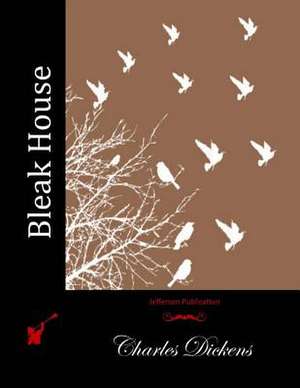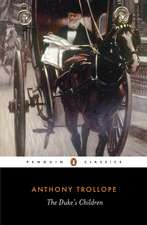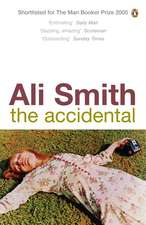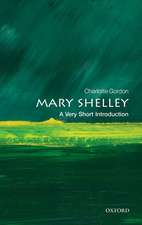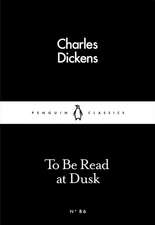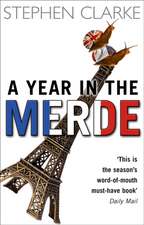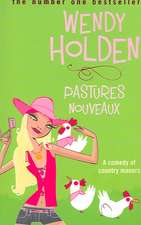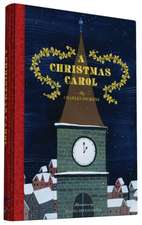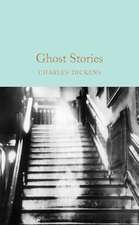Bleak House
Autor Charles Dickensen Limba Engleză Paperback
| Toate formatele și edițiile | Preț | Express |
|---|---|---|
| Paperback (31) | 56.50 lei 3-5 săpt. | |
| Dover Publications – 25 mai 2017 | 56.50 lei 3-5 săpt. | |
| Oxford University Press – 8 mai 2008 | 56.96 lei 10-16 zile | +32.49 lei 6-10 zile |
| Arcturus Publishing – 14 mai 2019 | 61.45 lei 3-5 săpt. | +23.79 lei 6-10 zile |
| Signet Classics – 31 mar 2011 | 63.09 lei 3-5 săpt. | |
| Penguin Books – 26 mar 2003 | 63.44 lei 23-34 zile | +36.30 lei 6-10 zile |
| Vintage Books USA – 30 apr 2008 | 65.50 lei 23-34 zile | +32.79 lei 6-10 zile |
| Vintage Publishing – 19 feb 2012 | 104.55 lei 3-5 săpt. | |
| CREATESPACE – | 110.51 lei 3-5 săpt. | |
| CreateSpace Independent Publishing Platform – | 110.83 lei 3-5 săpt. | |
| – | 131.72 lei 3-5 săpt. | |
| – | 133.77 lei 3-5 săpt. | |
| CreateSpace Independent Publishing Platform – | 167.37 lei 3-5 săpt. | |
| EUROSPAN – 31 dec 2010 | 168.75 lei 3-5 săpt. | +35.47 lei 6-10 zile |
| CREATESPACE – | 181.67 lei 3-5 săpt. | |
| Denton & White – | 188.98 lei 3-5 săpt. | |
| CREATESPACE – | 190.92 lei 3-5 săpt. | |
| – | 203.71 lei 3-5 săpt. | |
| West Margin Press – 21 oct 2020 | 220.59 lei 3-5 săpt. | |
| CREATESPACE – | 252.74 lei 3-5 săpt. | |
| – | 265.13 lei 3-5 săpt. | |
| Outlook Verlag – 24 sep 2019 | 558.26 lei 3-5 săpt. | |
| Book Jungle – feb 2009 | 199.57 lei 6-8 săpt. | |
| Devoted Publishing – 20 ian 2017 | 205.29 lei 6-8 săpt. | |
| Black Curtain Press – 4 apr 2013 | 208.89 lei 6-8 săpt. | |
| Bottom of the Hill Publishing – 31 aug 2013 | 217.05 lei 6-8 săpt. | |
| Throne Classics – 9 iul 2019 | 228.91 lei 38-44 zile | |
| Prince Classics – 10 iun 2019 | 230.81 lei 38-44 zile | |
| CreateSpace Independent Publishing Platform – | 239.82 lei 6-8 săpt. | |
| Adelphi Press – 29 aug 2018 | 294.12 lei 6-8 săpt. | |
| Simon & Brown – 7 apr 2013 | 373.42 lei 38-44 zile | |
| Echo Library – 30 iun 2005 | 449.30 lei 38-44 zile | |
| Hardback (9) | 66.64 lei 3-5 săpt. | +50.34 lei 6-10 zile |
| MacMillan Collector's Library – 4 feb 2020 | 66.64 lei 3-5 săpt. | +50.34 lei 6-10 zile |
| Penguin Books – 5 oct 2011 | 93.49 lei 23-34 zile | +82.22 lei 6-10 zile |
| Mint Editions – 6 oct 2020 | 283.27 lei 3-5 săpt. | |
| Megali Verlag – 26 aug 2023 | 583.83 lei 17-23 zile | +51.40 lei 6-10 zile |
| Outlook Verlag – 24 sep 2019 | 673.02 lei 3-5 săpt. | |
| Black Curtain Press – 3 apr 2018 | 269.45 lei 6-8 săpt. | |
| Throne Classics – 9 iul 2019 | 280.78 lei 38-44 zile | |
| Prince Classics – 10 iun 2019 | 281.32 lei 38-44 zile | |
| – | 437.09 lei 38-44 zile |
Preț: 110.83 lei
Nou
21.21€ • 22.24$ • 17.65£
Carte disponibilă
Livrare economică 12-26 martie
Specificații
ISBN-10: 1511998075
Pagini: 320
Dimensiuni: 216 x 279 x 17 mm
Greutate: 0.74 kg
Editura: CreateSpace Independent Publishing Platform
Descriere
Bleak House, Dickens's most daring experiment in the narration of a complex plot, challenges the reader to make connections - -between the fashionable and the outcast, the beautiful and the ugly, the powerful and the victims. Nowhere in Dickens's later novels is his attack on an uncaring society more imaginatively embodied, but nowhere either is the mixture of comedy and angry satire more deftly managed. Bleak House defies a single description. It is a mystery story, in which Esther Summerson discovers the truth about her birth and her unknown mother's tragic life. It is a murder story, which comes to a climax in a thrilling chase, led by one of the earliest detectives in English fiction, Inspector Bucket. And it is a fable about redemption, in which a bleak house is transformed by the resilience of human love. ABOUT THE SERIES: For over 100 years Oxford World's Classics has made available the widest range of literature from around the globe. Each affordable volume reflects Oxford's commitment to scholarship, providing the most accurate text plus a wealth of other valuable features, including expert introductions by leading authorities, helpful notes to clarify the text, up-to-date bibliographies for further study, and much more.
Recenzii
Notă biografică
Extras
In Chancery
London. Michaelmas Term lately over, and the Lord Chancellor sitting in Lincoln's Inn Hall. Implacable November weather. As much mud in the streets, as if the waters had but newly retired from the face of the earth, and it would not be wonderful to meet a Megalosaurus,forty feet long or so, waddling like an elephantine lizard up Holborn-hill. Smoke lowering down from chimney-pots, making a soft black drizzle, with flakes of soot in it as big as full-grown snow-flakes-gone into mourning, one might imagine, for the death of the sun. Dogs, undistinguishable in mire. Horses, scarcely better; splashed to their very blinkers. Foot passengers, jostling one another's umbrellas, in a general infection of ill-temper, and losing their foot-hold at street corners, where tens of thousands of other foot passengers have been slipping and sliding since the day broke (if the day ever broke), adding new deposits to the crust upon crust of mud, sticking at those points tenaciously to the pavement, and accumulating at compound interest.
Fog everywhere. Fog up the river, where it flows among green aits and meadows; fog down the river, where it rolls defiled among the tiers of shipping, and the waterside pollutions of a great (and dirty) city. Fog on the Essex marshes, fog on the Kentish heights. Fog creeping into the cabooses of collier-brigs; fog lying out on the yards, and hovering in the rigging of great ships; fog drooping on the gunwales
of barges and small boats. Fog in the eyes and throats of ancient Greenwich pensioners, wheezing by the firesides of their wards; fog in the stem and bowl of the afternoon pipe of the wrathful skipper, down in his close cabin; fog cruelly pinching the toes and fingers of his shivering little 'prentice boy on deck. Chance people on the bridges peeping over the parapets into a nether sky of fog, with fog all round them, as if they were up in a balloon, and hanging in the misty clouds.
Gas looming through the fog in divers places in the streets, much as the sun may, from the spongey fields, be seen to loom by husbandman and ploughboy. Most of the shops lighted two hours before their time-as the gas seems to know, for it has a haggard and unwilling look.
The raw afternoon is rawest, and the dense fog is densest, and the muddy streets are muddiest, near that leaden-headed old obstruction, appropriate ornament for the threshold of a leaden-headed old corporation: Temple Bar. And hard by Temple Bar, in Lincoln's Inn Hall, at the very heart of the fog, sits the Lord High Chancellor in his High Court of Chancery.
Never can there come fog too thick, never can there come mud and mire too deep, to assort with the groping and floundering condition which this High Court of Chancery, most pestilent of hoary sinners, holds, this day, in the sight of heaven and earth.
On such an afternoon, if ever, the Lord High Chancellor ought to be sitting here-as here he is-with a foggy glory round his head, softly fenced in with crimson cloth and curtains, addressed by a large advocate with great whiskers, a little voice, and an interminable brief, and outwardly directing his contemplation to the lantern in the roof, where he can see nothing but fog. On such an afternoon, some score of members of the High Court of Chancery bar ought to be-as here they are-mistily engaged in one of the ten thousand stages of an endless cause, tripping one another up on slippery precedents, groping knee-deep in technicalities, running their goat-hair and horse-hair warded heads against walls of words, and making a pretence of equity with serious faces, as players might. On such an afternoon, the various solicitors in the cause, some two or three of whom have inherited it from their fathers, who made a fortune by it, ought to be-as are they not?-ranged in a line, in a long matted well (but you might look in vain for Truth at the bottom of it), between the registrar's red table and the silk gowns, with bills, cross-bills, answers, rejoinders, injunctions, affidavits, issues, references to masters, masters' reports, mountains of costly nonsense, piled before them. Well may the court be dim, with wasting candles here and there; well may the fog hang heavy in it, as if it would never get out; well may the stained glass windows lose their color, and admit no light of day into the place; well may the uninitiated from the streets, who peep in through the glass panes in the door, be deterred from entrance by its owlish aspect, and by the drawl languidly echoing to the roof from the padded dais where the Lord High Chancellor looks into the lantern that has no light in it, and where the attendant wigs are all stuck in a fog-bank! This is the Court of Chancery; which has its decaying houses and its blighted lands in every shire; which has its worn-out lunatic in every madhouse, and its dead in every churchyard; which has its ruined suitor, with his slipshod heels and threadbare dress, borrowing and begging through the round of every man's acquaintance; which gives to monied might the means abundantly of wearying out the right; which so exhausts finances, patience, courage, hope; so overthrows the brain and breaks the heart; that there is not an honorable man among its practitioners who would not give-who does not often give-the warning, "Suffer any wrong that can be done you, rather than come here!"
Who happen to be in the Lord Chancellor's court this murky afternoon besides the Lord Chancellor, the counsel in the cause, two or three counsel who are never in any cause, and the well of solicitors before mentioned? There is the registrar below the Judge, in wig and gown; and there are two or three maces, or petty-bags, or privy-purses, or whatever they may be, in legal court suits. These are all yawning; for no crumb of amusement ever falls from Jarndyce and Jarndyce (the cause in hand), which was squeezed dry years upon years ago. The short-hand writers, the reporters of the court, and the reporters of the newspapers, invariably decamp with the rest of the regulars when Jarndyce and Jarndyce comes on. Their places are a blank. Standing on a seat at the side of the hall, the better to peer into the curtained sanctuary, is a little mad old woman in a squeezed bonnet, who is always in court, from its sitting to its rising, and always expecting some incomprehensible judgment to be given in her favor. Some say she really is, or was, a party to a suit; but no one knows for certain, because no one cares. She carries some small litter in a reti-cule which she calls her documents; principally consisting of paper matches and dry lavender. A sallow prisoner has come up, in custody, for the half-dozenth time, to make a personal application "to purge himself of his contempt;" which, being a solitary surviving executor who has fallen into a state of conglomeration about accounts of which it is not pretended that he had ever any knowledge, he is not at all likely ever to do. In the meantime his prospects in life are ended. Another ruined suitor, who periodically appears from Shropshire, and breaks out into efforts to address the Chancellor at the close of the day's business, and who can by no means be made to understand that the Chancellor is legally ignorant of his existence after making it desolate for a quarter of a century, plants himself in a good place and keeps an eye on the Judge, ready to call out "My lord!" in a voice of sonorous complaint, on the instant of his rising. A few lawyers' clerks and others who know this suitor by sight, linger, on the chance of his furnishing some fun, and enlivening the dismal weather a little.
Jarndyce and Jarndyce drones on. This scarecrow of a suit has, in course of time, become so complicated, that no man alive knows what it means. The parties to it understand it least; but it has been observed that no two Chancery lawyers can talk about it for five minutes, without coming to a total disagreement as to all the premises. Innumerable children have been born into the cause; innumerable young people have married into it; innumerable old people have died out of it. Scores of persons have deliriously found themselves made parties in Jarndyce and Jarndyce, without knowing how or why; whole families have inherited legendary hatreds with the suit. The little plaintiff or defendant, who was promised a new rocking-horse when Jarndyce and Jarndyce should be settled, has grown up, possessed himself of a real horse, and trotted away into the other world. Fair wards of court have faded into mothers and grandmothers; a long procession of Chancellors has come in and gone out; the legion of bills in the suit have been transformed into mere bills of mortality; there are not three Jarndyces left upon the earth perhaps, since old Tom Jarndyce in despair blew his brains out at a coffee-house in Chancery-lane; but Jarndyce and Jarndyce still drags its dreary length before the Court, perennially hopeless.
Jarndyce and Jarndyce has passed into a joke. That is the only good that has ever come of it. It has been death to many, but it is a joke in the profession. Every master in Chancery has had a reference out of it. Every Chancellor was "in it," for somebody or other, when he was counsel at the bar. Good things have been said about it by blue-nosed, bulbous-shoed old benchers, in select port-wine committee after dinner in hall. Articled clerks have been in the habit of fleshing their legal wit upon it. The last Lord Chancellor handled it neatly, when, correcting Mr. Blowers the eminent silk gown who said that such a thing might happen when the sky rained potatoes, he observed, "or when we get through Jarndyce and Jarndyce, Mr. Blowers;"-a pleasantry that particularly tickled the maces, bags, and purses.
How many people out of the suit, Jarndyce and Jarndyce has stretched forth its unwholesome hand to spoil and corrupt, would be a very wide question. From the master, upon whose impaling files reams of dusty warrants in Jarndyce and Jarndyce have grimly writhed into many shapes; down to the copying clerk in the Six Clerks' Office, who has copied his tens of thousands of Chancery-folio-pages under that eternal heading; no man's nature has been made the better by it. In trickery, evasion, procrastination, spoliation, botheration, under false pretences of all sorts, there are influences that can never come to good. The very solicitors' boys who have kept the wretched suitors at bay, by protesting time out of mind that Mr. Chizzle, Mizzle, or otherwise, was particularly engaged and had appointments until dinner, may have got an extra moral twist and shuffle into themselves out of Jarndyce and Jarndyce. The receiver in the cause has acquired a goodly sum of money by it, but has acquired too a distrust of his own mother, and a contempt for his own kind. Chizzle, Mizzle, and otherwise, have lapsed into a habit of vaguely promising themselves that they will look into that outstanding little matter, and see what can be done for Drizzle-who was not well used-when Jarndyce and Jarndyce shall be got out of the office. Shirking and sharking, in all their many varieties, have been sown broadcast by the ill-fated cause; and even those who have contemplated its history from the outermost circle of such evil, have been insensibly tempted into a loose way of letting bad things alone to take their own bad course, and a loose belief that if the world go wrong, it was, in some off-hand manner, never meant to go right.
Thus, in the midst of the mud and at the heart of the fog, sits the Lord High Chancellor in his High Court of Chancery.
Textul de pe ultima copertă
The labyrinthine, ingenious plot of Bleak House focuses on the seemingly endless lawsuit Jarndyce and Jarndyce, an inheritance dispute that has been moving through the courts for years. Dozens of characters, including the innocent young narrator Esther Summerson, her friends Richard Carstone and Ada Clare, and the jaded aristocrats Sir Leicester and Lady Honoria Dedlock, are directly or indirectly caught up in the case. Written in bold and inventive language, Bleak House is Dickens's epic vision of Victorian society.
The critical introduction and extensive appendices to this edition focus on the novel's social context and reception, Dickens's treatment of his women characters and the working class, and the inequalities of the Victorian legal system.
